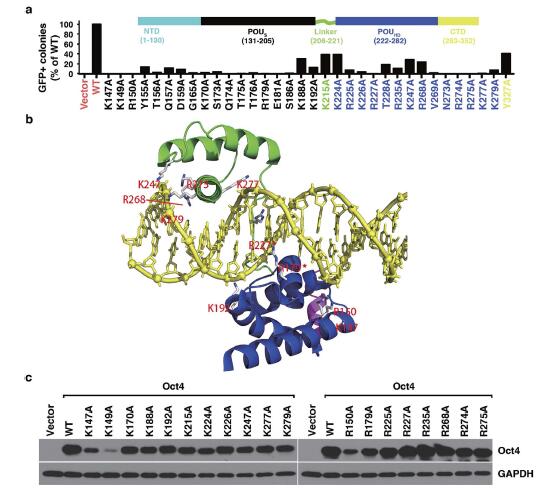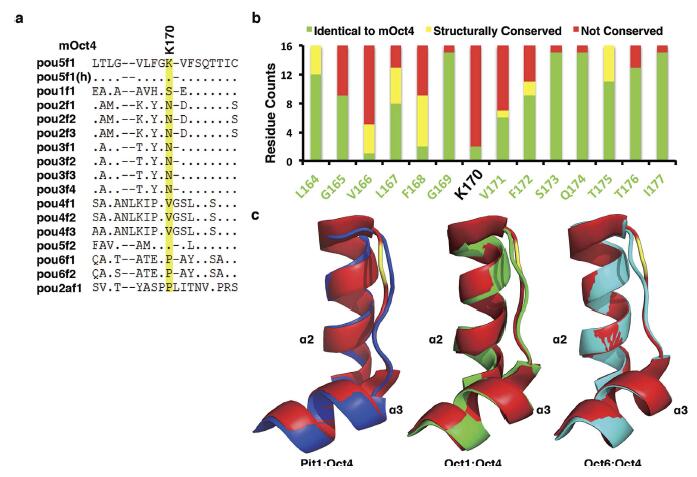On February 15, 2016, Dr. Zongping Xia’s laboratory published a paper “Critical POU domain residues confer Oct4 uniqueness in somatic cell reprogramming” in Scientific Reports. Wensong JIN and Lei WANG are the co-first authors, and Drs. Dahua CHEN, Qinmiao SUN and XIA are the corresponding authors of the paper.

The POU domain transcription factor Oct4 plays critical roles in self-renewal and pluripotency of embryonic stem cells (ESCs). Together with Sox2, Klf4 and c-Myc, Oct4 can reprogram any other cell types to pluripotency, in which Oct4 is the only factor that cannot be functionally replaced by other POU family members. To investigate the determinant elements of Oct4 uniqueness, we performed Ala scan on all Ser, Thr, Tyr, Lys and Arg of murine Oct4 by testing their capability in somatic cell reprogramming. We uncovered a series of residues that are important for Oct4 functionality, in which almost all of these key residues are within the POU domains making direct interaction with DNA. The Oct4 N- and C-terminal transactivation domains (TADs) are not unique and could be replaced by the Yes-associated protein (YAP) TAD domain to support reprogramming. More importantly, we uncovered two important residues that confer Oct4 uniqueness in somatic cell reprogramming. Our systematic structure-function analyses bring novel mechanistic insight into the molecular basis of how critical residues function together to confer Oct4 uniqueness among POU family for somatic cell reprogramming.

Text link: http://www.nature.com/articles/srep20818



